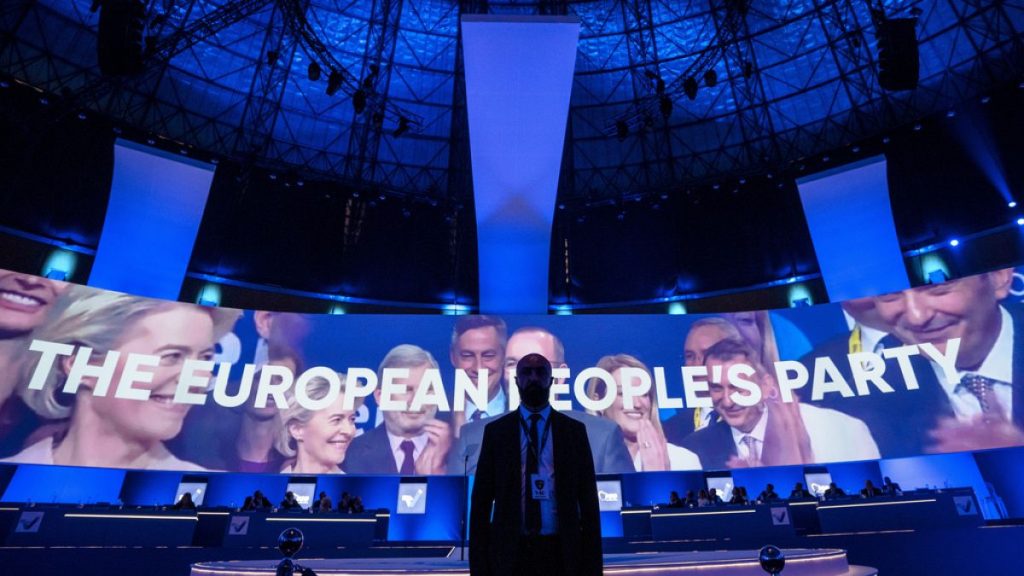The European People’s Party (EPP), a centre-right political force, convened in Berlin to delineate its strategic roadmap for the 2025 horizon. Dominating the discussions were concerns about the ascendance of far-right ideologies, the imperative to bolster economic competitiveness, and the urgent need to address the challenges of migration. Friedrich Merz, leader of Germany’s Christian Democratic Union and a prominent figure within the EPP, articulated the party’s threefold focus: revitalizing economic competitiveness as the top priority, followed by concrete actions to curb illegal migration, and finally, reinforcing security through a robust military posture. Merz, a frontrunner for the German chancellorship in the upcoming February elections, underscored the necessity of transitioning from discussions to tangible measures in tackling irregular migration.
The EPP’s economic concerns stem from a perceived decline in European competitiveness relative to other global regions, particularly the United States. The party pointed to a widening GDP gap between the EU and the US, which has grown from 17% in 2002 to a concerning 30% in 2023. This disparity is attributed primarily to lower productivity within the EU, resulting in sluggish income growth and weakened domestic demand. Further exacerbating the situation are pressures on international trade and the fallout from the Russia-Ukraine conflict, which has led to a surge in energy prices and a further dampening of the European economic outlook.
To address these challenges, the EPP advocates for a streamlined regulatory environment, proposing a simplification of existing laws, a reduction in unnecessary regulations, and the adoption of a “one in, two out” principle for new regulations. This principle would mandate the removal of two existing regulations for every new one introduced, aiming to reduce the overall regulatory burden on businesses. Furthermore, the party suggests a strategic approach to corporate sustainability laws, advocating for delays in implementation and a reduction in their scope to alleviate pressures on businesses, particularly in the current economic climate.
The EPP’s emphasis on competitiveness resonates with broader concerns about the EU’s economic performance. The widening GDP gap with the US, coupled with internal challenges like lower productivity and weakened domestic demand, paints a picture of an economy struggling to keep pace with global competitors. The party’s proposed solutions, centered on deregulation and a more cautious approach to corporate sustainability measures, reflect a belief that a less burdensome regulatory environment will stimulate economic activity and enhance competitiveness. However, these proposals may also spark debate about the balance between economic growth and environmental protection.
The focus on migration reflects another key concern for the EPP and many European citizens. The party’s call for tougher rules to limit irregular migration underscores a growing sentiment that current policies are insufficient to address the challenges posed by uncontrolled migration flows. This emphasis aligns with a broader trend in European politics, where migration has become a central issue, often driving political discourse and influencing electoral outcomes. The EPP’s stance on migration, particularly its emphasis on stricter controls, is likely to resonate with voters concerned about the social and economic implications of uncontrolled migration.
The EPP’s meeting in Berlin served as a platform to articulate its priorities and lay the groundwork for its political agenda in the coming years. The party’s focus on economic competitiveness, migration, and security reflects a broader set of challenges facing Europe. The proposed solutions, particularly those aimed at deregulation and stricter migration controls, are likely to be central to the political debate in the run-up to the 2025 European elections. The EPP’s stance on these issues will not only shape its own political fortunes but could also significantly influence the direction of European policy in the years to come. The party’s commitment to tackling these complex issues highlights the significant role it intends to play in shaping the future of Europe.














